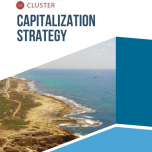CIDEAL Foundation will put in practice all its knowledge and experience to promote intercultural exchange and development in Spain. This Foundation has worked in various fields, whether in areas such as development cooperation, intercultural dialog, gender equality, youth, education, immigration, the environment or means of communication. The heterogeneity of the members and the interdisciplinarity of its activities constitute an added value to the network itself and an element of richness.
Examples of projects implemented in Spain:
2005: “Design of a Program on Governance and Institutional Strengthening for the Mediterranean Region” (co-financed by Spanish Agency for International Cooperation (AECID)). The program covered a wide geographical area of intervention that includes North Africa, Middle East and Mediterranean European countries not members of the European Union. The program was derived from the Director Plan of the Spanish Cooperation and was inspired by the guidelines of the Barcelona Process, to promote the political reform and the economic and trade liberalization in the area, guidelines that were renovated from an institutional perspective with the Policy of European Neighbourhood. The program identified four strategic areas of intervention, are as follows: The promotion of social participation, representative democracy and politic pluralism (strengthening of political parties and civil society organizations, judiciary, electoral systems, human rights, etc.); the promotion of a favourable environment for juridical security, socioeconomic development and wealth distribution. (Improvement of juridical and economic security, social dialogue, labour rights, fiscal policy, public income and expenditure, adoption of normative and institutional rules of UE internal market, etc.); The reform and modernization of Public Administration, according to the parameters of good governance (management of public policies, decentralization process, transparency, public ethics and fighting against corruption). The main beneficiaries of the program were: Public administrations at the central, regional and local levels; Legislative and Judiciary powers and institutions guaranteeing democracy; Social and economic agencies; Civil Society Organizations.
2007-2008: “Research in conflicts management in the international context, diffusion campaign and peace education for secondary school students in Madrid”, co-financed by Ministry of Education and Science. The Project was developed through three working phases, are as follows: First, a research was conducted about the conflicts management practices in the international context. The research was followed by a specialised publication on the subject that was widely disseminated in Spain. Second, a pedagogic adaptation of the research contents was undertaken and some didactic materials developed for its diffusion among students of the last Secondary Education course. Third, a series of educative and dissemination actions addressed to students of the last courses in Secondary Education (around 16 years old) were developed. These students were, according the opinion of schools directors and teachers involved, in very good conditions to become beneficiaries of this project, since they still are in a permeable phase to acquire values and knowledge and, at the same time, they had greater capacities of thinking and abstraction than lower levels students.
2008-2009: “Making aware on co-development: how to do it?”, co-financed by Municipality of Madrid. The project carried out an awareness campaign bound to Madrid’s civil society organisations with interest in the execution of co-development actions, as well as to immigrant people living in Madrid. Firstly, a spreading notebook on co-development and on the main practical experiences carried out in Madrid was edited and disseminated among immigrants associations, ONGs and other inserted actors. Secondly, an awareness seminary of 3 days was organised with the participation of experts from all Spain, which was how to perform all the stages of a project (identification, design, formulation, execution and monitoring) using the logic framework approach and the right adjustments.
2008-2011: “Design and editing promotional materials to strengthen the knowledge and making aware on human rights and development” (co-financed by Spanish Agency for International Cooperation (AECID)). This project aimed to enrich the knowledge, the education and making aware among different sector of Spanish society. The objective was to raise awareness on the risks that actually threaten the human rights and the need to defend and promote them. To that end, the following actions were planned: phase of analysis, publication of a book directed to the specialists of this field, editing a CD-ROM including a popular version of the book, diffusion of a recommendations and good practice guide on human rights and a useful agenda for communication professionals, teachers and experts. Finally, all the documents and materials were disseminated in the sectors related to the human rights.
2009-2010: Realization of: 1. Sector-based assessment of the State General Administration aid to the sector “Government and Civil Society”; 2. Sector-based assessment on other international cooperation agencies in the sector “Government and Peace building” (co-financed by Spanish Agency for International Cooperation (AECID)). The assessment was realised to analyze the State General Administration and other international cooperation agencies aid to Government and Civil Society Sector for the period 2005-2008 (previous to the Spanish Cooperation Master Plan). The sub-sectors were as follows: Economic and development Policy/planning, Financial Management of public sector, Public Administration, Strengthening of Civil Society, Electoral Processes, Freedom of Information, Legal and judiciary Development, Human Rights, and Management and Reform of Security Systems.
2010-2011: “Internet and the human rights: a challenge for the future of young people” (co-financed by Municipality of Madrid). Internet could influence Human Rights in a positive way, thronging their promotion and defence, or in a negative way, providing new frameworks of vulnerability to some fundamental rights. None protection and control system of the human right was developed in this new virtual space to tackle the behaviours that could affect in the human right field. Once that the lacks were detected, an intervention was carried out in order to enrich the knowledge and the education in Madrid society, with special attention towards young people and teenagers, in order to make them aware of the risks of human right in the Internet world, especially the rights to the development and the need to defend and to promote this rights.


